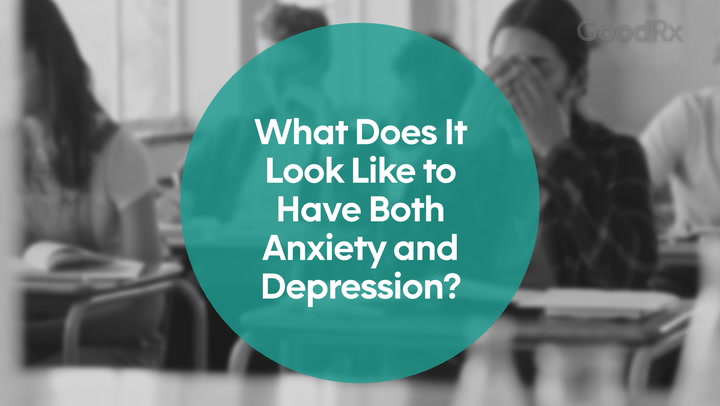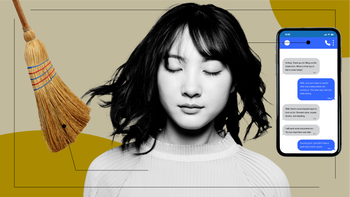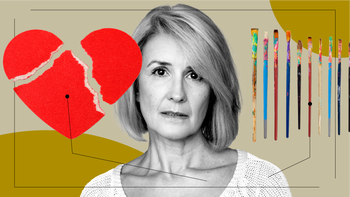
8 Causes of Anxiety
Key takeaways:
Anxiety is affected by many different emotional, physical, and social factors.
Anxiety can run in families, and your life experiences influence it.
Many medications and health conditions are linked to anxiety.
Some lifestyle habits can make anxiety worse, like not getting enough sleep, having too much caffeine, or using social media.
Table of contents

It’s normal to feel anxious from time to time. After all, anxiety is what allows you to predict and plan for bad situations. And it pushes you to prepare for the future.
But for some people, worries seem to take on a life of their own. While one person might take day-to-day risks in stride, another might be weighed down with fears about what might happen.
If you’re living with anxiety, you may have wondered about what causes anxiety. Well, it turns out the answer isn’t so simple. We don’t always know what causes anxiety. And the truth is, it’s probably different for everyone. But, for many people, anxiety seems to be linked to a combination of genetics (family history), physical health, as well as life choices and experiences.
Search and compare options
In this article, we’ll dive deeper into some of the potential causes of anxiety. Read on to learn more about anxiety disorders and what the research says about the links between anxiety and different mental, physical, and social factors.
What are anxiety disorders?
Everyone has anxiety from time to time. But, for some people, anxiety can happen too often or too much — to the point where it starts to interfere with day-to-day life. When this happens, it can be a sign of an anxiety disorder.
Anxiety disorders are a group of mental health conditions. Though each anxiety disorder has unique symptoms, they all cause some type of anxiety.
Generalized anxiety disorder is the most common, but there are others:
Social anxiety disorder (SAD)
Separation anxiety disorder
Anxiety disorders often begin in childhood and may continue off and on throughout life. In children, anxiety causes problems for boys and girls equally. After puberty, anxiety is more common in women, but it can still happen to anyone.
Typically, anxiety happens when multiple causes come together. Here are eight established causes of anxiety.
1. Family history of anxiety
Anxiety disorders run in families. Research shows that people with anxiety are likely to have family members across generations with anxiety disorders.
Here are key takeaways from this research:
Some of this is genetic. In other words, the risk of anxiety was printed in someone’s DNA before birth. Many people with anxiety can point to parents, grandparents, or other relatives who have had similar problems. When anxiety is in someone’s DNA, it may crop up at any stage of life — although many people go through periods of being anxious and periods of feeling fine.
A life situation can “trigger” anxiety. Since families often share the same living environment, a stressful situation — like homelessness or poverty — might cause anxiety in multiple family members over time.
Stressful environments can cause anxiety. New research suggests that being exposed to a stressful environment during pregnancy — or even before pregnancy — might be tied to anxiety in children later on. Through the study of epigenetics, researchers are beginning to understand how emotional stress may even change the DNA that parents pass down to their children.
2. Specific fears
In some cases, anxiety is entirely linked to a single fear. This type of anxiety may be intense in certain situations but disappear at other times. For example, a person with anorexia may have intense anxiety about gaining weight but no anxiety about anything else.
Examples of mental health conditions with specific fears are:
Specific phobias, like agoraphobia
Social anxiety disorder
Separation anxiety disorder
3. Trauma, stress, and upsetting situations
Living through a stressful situation — such as financial insecurity, family upheaval, trauma, or loss — can be a starting point (or trigger) for anxiety.
Stress and trauma don’t cause anxiety in everyone. Some people are just less prone to anxiety. And some people have characteristics that help lower their chances of developing anxiety, even when they’re experiencing a stressful situation. Experts report that spirituality, a sense of life purpose, and a feeling of social connectedness can protect against anxiety.
But nothing can prevent anxiety all the time. For people with a strong tendency toward anxiety — perhaps because of their genetics or family history — life stress can tip the balance from healthy functioning to crushing anxiety.
4. Social media
New research shows that social media can also play a role in anxiety. This seems to happen for a number of reasons, including:
Social comparison: Social media constantly exposes you to images and stories that make you feel like you aren’t as good as everyone else. People judge themselves and worry that others are judging them.
A lack of emotional regulation: Research shows that people turn to the internet as a way to avoid strong emotions like love, anger, or jealousy. This keeps us from learning how to handle emotional situations in real life, including situations that create anxiety.
A lack of in-person social interaction: For people who are shy, or even for those who have mild social anxiety, using text messages or other online communication tools may seem like a good way to make friendships easier. But relying too much on technology for communication can make you less confident in your real-life relationships. In this way, something that started off as a small problem can become a much larger one over time.
Worries about being inadequately connected: With more online connection, people get more worried when they don’t get an immediate response to a message or text. This worry about missing out on something can add to anxiety.
Cyberbullying: The online environment can be home to frightening, mean, and bullying behavior. Information people share about themselves online can be saved and shared with others. And it can be used to create situations that are hurtful or embarrassing. Anyone can become a victim of cyberbullying, but teens are especially vulnerable. Cyberbullying in teens is connected to high rates of embarrassment, depression, fear, loneliness, and worry.
5. Lack of sleep and sleep anxiety
It’s no mystery that not getting enough sleep makes it hard to cope with stress. But sleep can also have a big effect on mental health, including depression and anxiety. And if you have ongoing problems with sleep (insomnia), it can even increase your risk of getting an anxiety disorder.
But the link between poor sleep and anxiety doesn’t end there. Anxiety itself can keep you awake if it sets you to worrying in the middle of the night. Lying awake worrying interferes with sleep, which results in even more difficulty coping over time.
6. Medications or drugs
Many medications cause anxiety as a side effect. In most cases, this happens because the medications raise heart rate and heightens alertness.
If you’re prescribed a medication that you think is causing anxiety, talk to your healthcare provider before you stop taking it. Some of the medications on this list can cause problems if you stop taking them quickly.
Nonprescription medication
Nonprescription substances and medications include:
Coffee, tea, soda, and energy drinks
Medications that contain caffeine (such as Excedrin or NoDoz)
Pseudoephedrine (Sudafed)
Phenylephrine (Sudafed PE)
Prescription medications
Prescription medications that may lead to anxiety include:
Steroids, such as:
Dexamethasone (Decadron, TaperDex, or others)
Fluticasone (Flovent, Advair, or others)
Hydrocortisone (Cortef or others)
Prednisone (Rayos or others)
Prednisolone (Orapred, Prelone, or others)
Triamcinolone (Kenalog or others)
Stimulants used for ADHD, such as:
Methylphenidate (Concerta, Ritalin, or others)
Amphetamine (Adderall, Mydayis, or others)
Asthma medications, such as:
Albuterol (ProAir, Ventolin, or others)
Montelukast (Singulair)
Salmeterol (Advair, Serevent, or others)
Theophylline
Thyroid medicines, such as:
Levothyroxine (Levoxyl, Synthroid, or others)
Illegal drugs
Illegal drugs that can cause anxiety include:
Cocaine, methamphetamine, and other stimulants
PCP and drugs that cause hallucinations
Sometimes anxiety is a problem when you stop taking a medication or drug. This can also occur when you stop drinking alcohol. This happens because your body has to adjust to the substance leaving your system. Although it seems like this effect should be temporary, it can be severe. In some cases, you may even need medical supervision.
Watch for signs of anxiety after stopping:
Anesthesia medications and sedatives
Cannabis (marijuana)
Opioids (morphine, fentanyl, or others)
7. Medical illnesses
Medical illness can cause anxiety. In fact, nearly any medical diagnosis (including anxiety) has the potential to trigger anxiety. That’s because the illness itself, or the events that led up to its diagnosis, might be scary or overwhelming.
But apart from the stress and worry that goes along with being sick, anxiety is linked to many different medical conditions. Examples include:
Thyroid problems, like hyperthyroidism or hypothyroidism
Dementia, like Parkinson’s disease
Lung problems, like chronic obstructive pulmonary disease (COPD) or asthma
Polycystic ovary syndrome (PCOS)
If you’re being treated for your illness and you think the illness may be causing anxiety, you should let your provider know.
8. Brain chemistry
It’s also helpful to think about what’s going on inside the brain of a person with anxiety.
Serotonin (5-HT) is a chemical produced by brain cells. It acts as a chemical messenger, or neurotransmitter, between brain cells to help them communicate with each other.
Most scientists believe that the patterns of serotonin in a person’s brain are related to their levels of anxiety. Serotonin plays an important role in controlling mood, including anxiety, aggression, and depression. So medications that increase serotonin levels can be helpful in treating both anxiety and depression.
Genes likely influence how much serotonin is in the brain and how the brain behaves in response to serotonin. This helps explain why anxiety runs in families.
There are probably many more built-in factors that help determine who will develop anxiety. As scientists learn more about the individual differences that predict anxiety problems, they will also find out more about how to treat them.
The bottom line
Anxiety is linked to many different things, like genetics, the brain, physical health, and life experiences. This can make it hard to figure out exactly where anxiety is coming from. But no matter what the cause of your anxiety — help is available. Talking to a healthcare provider is a great place to start. This way, you can have a better understanding of what causes of anxiety are affecting you, and which ones you can and can’t control.
Why trust our experts?



References
American Psychological Association. (2013). What role do religion and spirituality play in mental health?
Anxiety & Depression Association of America. (2021). Sleep disorders.
Babenko, O., et al. (2015). Stress-induced perinatal and transgenerational epigenetic programming of brain development and mental health. Neuroscience and Biobehavioral Reviews.
Bamalan, O. A., et al. (2022). Physiology, serotonin. StatPearls.
Carhart-Harris, R. L., et al. (2017). Serotonin and brain function: A tale of two receptors. Journal of Psychopharmacology.
Centers for Disease Control and Prevention. (2022). What is epigenetics?
Gottschalk, M. G., et al. (2017). Genetics of generalized anxiety disorder and related traits. Dialogues in Clinical Neuroscience.
Hoge, E., et al. (2017). Digital media, anxiety, and depression in children. Pediatrics.
Pires, G. N., et al. (2016). Effects of acute sleep deprivation on state anxiety levels: a systematic review and meta-analysis. Sleep Medicine.
Stener-Victorin, E., et al. (2019). Origins and impact of psychological traits in polycystic ovary syndrome. Medical Sciences.
Stopbullying.gov. (2021). What is cyberbullying.
For additional resources or to connect with mental health services in your area, call SAMHSA’s National Helpline at 1-800-662-4357. For immediate assistance, call the National Suicide Prevention Lifeline at 988, or text HOME to 741-741 to reach the Crisis Text Line.

























